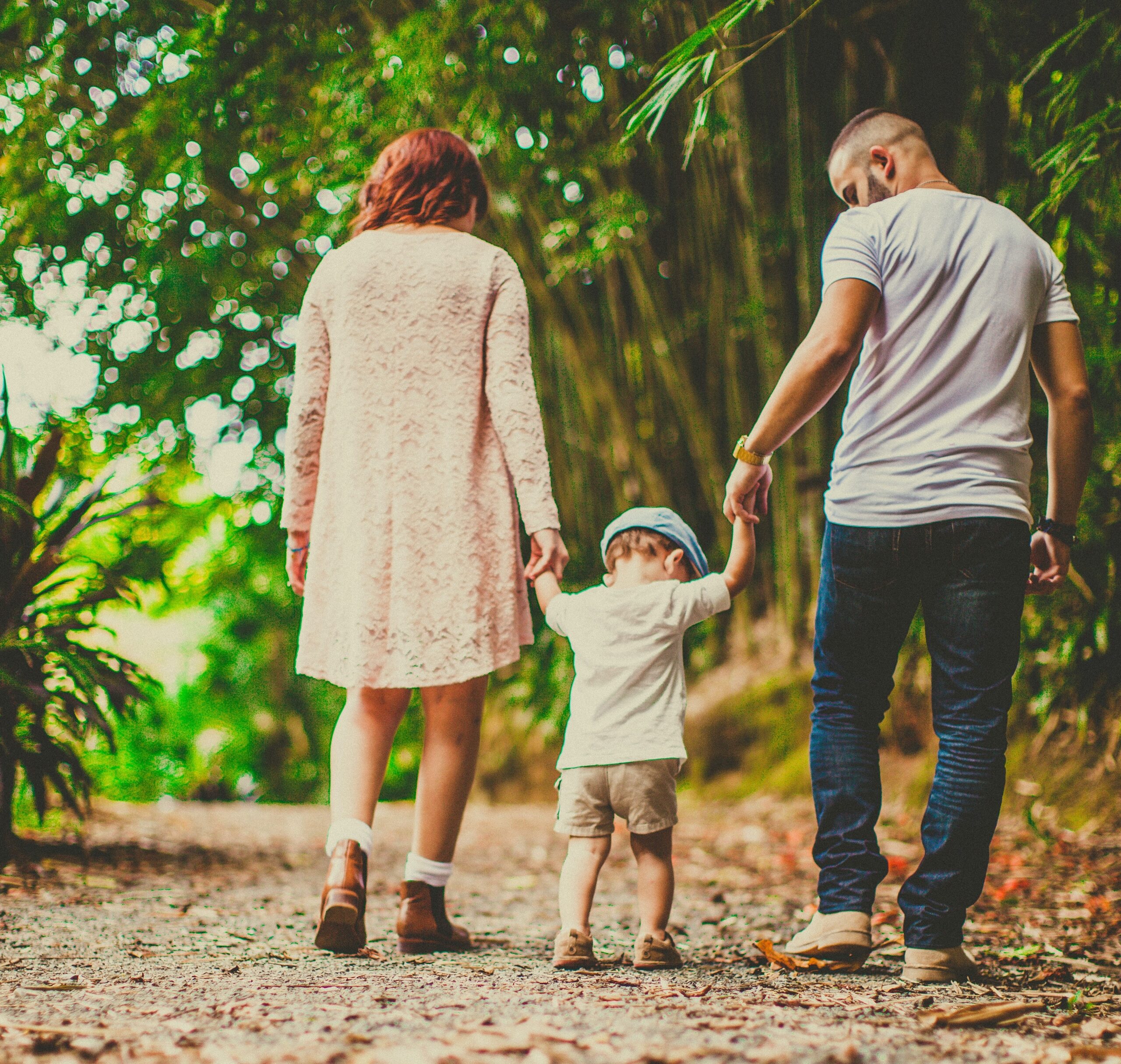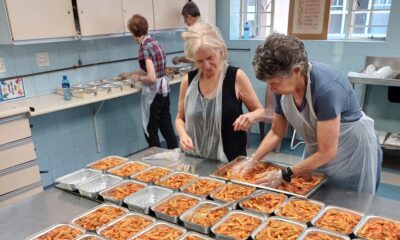
Banner

Chev calls for foster families for vulnerable minors
Published
11 months agoon
By
Nicola MiltzAn advert placed by Arcadia Jewish Children’s Home in the newspaper two weeks ago calling for a foster family for four young siblings has highlighted the need for foster parents for a growing number of vulnerable children in the community.
The Arcadia advert called for a foster family to take care of four young siblings, one a baby boy just nine months old, whose biological parents are unable to take care of them at this time.
The decision to advertise for foster parents publicly wasn’t taken lightly by the Chevrah Kadisha, which usually deals privately with all matters concerning child welfare and social services and has been doing so behind the scenes for many years.
However, so urgent is the need for a foster family for these four little people, the Chev placed the advert in the hope that it could raise awareness which will enable them being placed in a warm, caring, safe environment as soon as possible. There’s also a need for potential, well screened, and readily available foster parents to call upon when the need arises.
“In the past year, more than half the admissions to the Arcadia Child and Youth Care Centre have been new-borns, infants, and toddlers up to the age of seven,” said Glynne Zackon, group manager of social services at the Chevrah Kadisha.
“There’s an increased need for foster parents as there’s an increase in younger children needing care. This could be cyclical and can settle,” she said.
Saul Tomson, chief executive of the Chev told the SA Jewish Report that there has always been a need for foster parents in the community. “This isn’t new. The need changes, it goes through peaks and troughs. Younger children do better with foster families than they do in a children’s home. While Arcadia is willing and able to care for them, we sometimes seek the partnership of the community,” he said.
“It’s ideal to keep siblings together even though this isn’t always easy to achieve,” he said.
“Foster care offers children a safe and caring home when their biological families cannot take care of them,” said social worker Tania Leibovitz, the Chev’s group intake consultant.
“The role of the foster carer is to provide a safe, secure environment for the foster child on either a temporary or more permanent basis, and to offer nurturing, kindness, and constructive boundaries to support the child’s emotional and mental well-being,” she said.
A foster parent must be able to “hold the emotional pain” of the foster child, and respect that they do have biological parents.
“These are special individuals who want to make a difference. They are willing to share and care and bring strangers into their home. It’s a true act of chesed,” Leibovitz said, “They must be open to working with social workers as they become part of the team that provides for the child’s overall needs.”
A Johannesburg foster father, who wishes to remain anonymous, told the SA Jewish Report that he and his wife decided to foster a baby girl whose parents were very compromised many years ago.
“We were already parents with children of our own but felt this was an opportunity to make a difference in a child’s life. We felt we had the capacity to add another child to our family nest and offer this baby what she needed,” he said.
“We raised her as a child should be raised in a warm environment and today, she’s a young, well integrated adult,” he said.
Describing the journey with her as “challenging”, it was amazing to see how she became enveloped in the family and taught them all tolerance and to be sensitive to different kinds of people, he said.
The couple later fostered another child.
“Fostering requires a willingness to extend yourself. It’s a tremendous opportunity to do good, but it’s not necessarily an easy ride, it was a roller-coaster ride of note,” he said.
Looking back, he said, “the Talmud teaches that whoever saves a single life, it’s as though he saved an entire world. Fostering offered us an opportunity to provide these children, who, through no fault of their own, faced a reduced chance of living a good life due to their unimaginably difficult family background, with a genuine chance to experience a normal, coping, happy life – quite possibly their only opportunity. This has been rewarding.”
One Johannesburg woman, who didn’t have her own children, said becoming a foster parent to two siblings previously at Arcadia more than 10 years ago, was the “best thing” that had happened to her.
“There’s nothing I wouldn’t do for them,” she told the SA Jewish Report.
As a regular visitor to Arcadia for many years, she knew the siblings and their heart-breaking story quite well. They had been abandoned, and their parents were drug addicts, unable to care for them.
“I had never considered being a foster parent, but all this changed when the little boy looked at me and asked, ‘Why can’t you be my mom’,” she said. “It took a lot of thought and discussion, before finally committing, but once I had made up my mind, there was no looking back.”
“These kids were third-generation welfare children. The good, the bad, and the ugly came with them. It has been quite a journey, but the good far outweighs the bad. Today, they are functioning, independent young adults who have a bright future ahead of them. I’m grateful to have played a part in their growth and development by offering them an alternative way of seeing the world outside of a child and youth care centre. I’m overwhelmed with gratitude for having them in my life. I never realised how much I would get out of this. It has been a privilege.”
The young woman she fostered told the SA Jewish Report, “My foster mom changed my life. I don’t think my brother and I would be where we are today if it hadn’t been for her.
“Though we received the best care, love, and support at Arcadia, we felt we were chosen by someone very special to take care of us and for the first time, we could feel a sense of pride in our story.”
The Chev hopes that more people will come forward so there are enough foster carers available at the right time and in the right place to provide safe, loving homes for these children.
Leibovitz and Zackon say foster care is a good option for young children under seven due to their developmental milestones of identity formation, modelling, and care needs. They say it’s particularly beneficial because it emulates the functioning of a family, which provides a child with a sense of belonging and attachment.
“Foster care is also a good option when we know there’s very little chance of a child returning to their biological parents in the long term so they have the care of more adults in their world and the opportunity to benefit from a family,” Zackon said. “The biological family won’t be excluded from interactions with their children, yet we look at keeping the foster care home as a safe space.”










